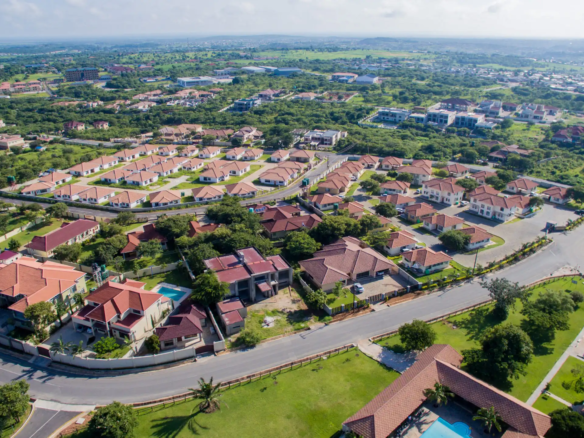Emerging Land Use Trends: Marketing Insights for Legal Professionals
Zambia is going through a major urban development. Land use is changing to adapt to new circumstances as a result of the population’s rapid growth and the expansion of metropolitan areas like Lusaka, Ndola, and Kitwe. The land use landscape is growing increasingly complex due to factors like the emergence of informal settlements and sustainable housing developments.
These changes have implications for legal practitioners that go beyond regulation. Rather, they offer genuine chances to increase exposure and clientele. Investors, local authorities, and real estate developers will want dependable legal counsel to guide them through new territory as they react to these developing trends.
The lawyers best positioned to benefit are those who understand these land use trends and tailor their practice accordingly. Lawyers can use their legal knowledge as a compelling marketing advantage, appealing to clients looking for immediate, practical solutions.
The Effect of Zoning Reforms
Cities in Zambia are growing denser than many public infrastructure systems can handle. The lack of affordable official housing has left a gap that is still being filled by informal dwellings. In order to better incorporate these facts into plans for urban expansion, zoning laws are currently being examined and modified.
Legal experts are crucial in guiding developers and individuals through this changing zoning landscape. Their assistance is more important than ever, whether it is for rezoning applications, obtaining official titles, or elucidating land ownership.
In marketing, law firms that have a grasp of the fine balance between official regulation and practical development will be able to draw in a wider range of clients
By addressing these topics in online content, legal professionals can establish themselves as proactive and community-conscious advisors.
The Green Shift
Environmentally responsible development in Zambia is gaining traction. Both urban and rural areas are seeing an increase in solar energy projects, and green features are being included in building designs more frequently to increase energy efficiency and lessen environmental effects. Due to this change, there are now additional legal factors to take into account, such as drafting agreements for renewable energy installations and adhering to environmental impact assessments.
A new generation of clients, such as community cooperatives, green developers, and non-governmental organisations, can be effectively served by practitioners with expertise in this area. These customers frequently need legal advice as well as confirmation that their initiatives comply with regional and federal environmental regulations.
By showcasing expertise in this area, law firms can connect with a forward-thinking audience. Sharing insights on sustainable land use, participating in green initiatives, or highlighting involvement in eco-compliant projects are all smart, relevant ways to market legal services in a changing landscape.
The Decentralisation of Commercial Space
The dynamics of commercial real estate have changed as a result of Zambia’s transportation system’s evolution. In particular, ride-hailing platforms’ effects on the real estate market have made it possible for companies and citizens to relocate farther from crowded city cores without sacrificing accessibility. Suburban and even peri-urban areas are becoming more attractive for offices, retail stores, and other business endeavours due to these services.
More properties are being repurposed or reclassified as a result of this decentralisation, and local governments are examining their zoning maps to accommodate the change. This is an opportunity for attorneys to provide advice on land use conversions, new business leases, and compliance with local bylaws.
From a marketing standpoint, showing that you understand how transportation changes impact real estate development, particularly in areas that were once thought to be “too far out,” might attract clients looking to take advantage of new business zones.
Featuring content on this trend through your website, legal blog, or even LinkedIn page can position your firm as adaptable and aware of the evolving needs of businesses in Zambia.
The Rise of Mixed-use Developments and Smart Communities
In Zambia, integrated complexes that blend commercial, residential, and recreational areas are becoming more and more popular. Developers are investing in developments that combine many services as people look for walkable communities and convenience. Consider residential complexes with common areas for recreation and co-working, or apartments above retail stores.
A variety of legal issues are raised by these intricate developments, including shared infrastructure contracts, cooperative development agreements, and tiered ownership frameworks. To make sure projects go smoothly from purchase to implementation, legal experts who are aware of these nuances are essential.
Marketing your legal experience in this space means highlighting your ability to manage complexity. Featuring past successes in handling mixed-use projects or sharing educational content that unpacks the legal challenges of such developments can differentiate your firm. It also signals to potential clients that you’re a partner in bringing visionary communities to life.
Turning Insight into Visibility
Visibility matters as much as expertise. Clients, especially institutional ones, want legal partners who are not just legally sound but also market-savvy. One effective way to demonstrate to clients that you fully get the context of their needs is through thought leadership.
Legal professionals can build authority by writing opinion pieces on zoning changes, participating in panel discussions on urban development, or offering bite-sized insights via video on social media. These platforms provide ways to share timely, digestible content that aligns with the latest land use trends.
What’s important is not simply having the knowledge, but making that knowledge visible. Producing localised, insightful content can establish trust and keep your firm top-of-mind for clients navigating the changing property landscape.
Conclusion
Staying relevant means more than knowing the law. It means understanding the broader context and using that knowledge to connect meaningfully with clients. Marketing tactics that take into account current land use trends demonstrate to clients that your company is aware of the factors influencing the future.
You can make a real difference in a rapidly evolving industry and future-proof your legal firm by coordinating your messaging and utilising platforms that connect with both traditional and digital audiences.
About the Author:
Althea Greene is a wordsmith extraordinaire with a passion for weaving stories that inspire and uplift. When she’s not typing away at her keyboard, you can find her exploring new hiking trails or curling up with a good book and a cup of tea.
Image Credit: Photo by RDNE Stock project




